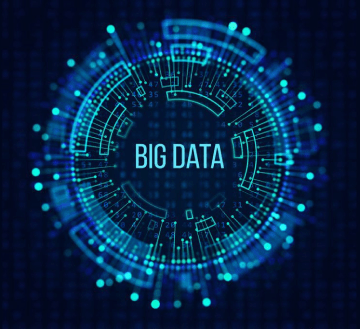
Big Data Course
Big Data refers to large sets of collected data. Cloud Computing pertains to the mechanism that remotely handles and performs actions specified in these data.
Cloud computing providers often utilize Software as a Service (SaaS), which is software provided to users as services available on the provider's website.
Big Data Studies and Career Prospects
The realm of Big Data has been rapidly advancing and gaining momentum in the IT industry in recent years. Utilizing Big Data Science enables organizations to leverage information from various sources and draw insights for future business activities, financial decisions, process optimization, and more.
This is a new world of possibilities for profit creation, development, and process optimization. As a result, this field is continuously expanding, and there is a high demand for skilled workers.
Currently, there is a significant shortage in the local and international job market for Big Data professionals. Research has shown that the job market will likely struggle to provide skilled and professional workers in this field to meet the demand.
Industry Demand – Big Data
The development of the IT industry, with its various technological solutions and data communication, is producing massive amounts of information for market-operating companies. Consequently, the demand for Big Data professionals is very high, creating competitive wages and employment conditions in the field.
The ability to work with vast amounts of data for a variety of activities and goals positions the field of Big Data at the forefront of today's and upcoming practices. Accordingly, there is also a growing demand for project development.
Who is the Big Data course for?
- Graduates of colleges/universities interested in specializing in Artificial Intelligence (AI) system development.
- Hardware/software/computer science engineers without experience in this field seeking professional transition.
- Individuals with relevant previous background and experience, including Python development and working with Linux operating systems.
Course Description – Big Data
The Big Data course includes lectures and practical exercises.
The Big Data course includes:
- Class exercises accompanied by explanations, homework assignments, and solutions on the course website.
- Course booklet.
- Videos and presentations on the course website.
Towards the end of the course, each student will complete a practical project that summarizes the acquired knowledge during the course.
The lectures are held once a week in the evening hours.
Course Structure
Ch. 1
Introduction to Big data and Hadoop Ecosystem
Ch. 2
HDFS and YARN
Ch. 3
MapReduce and Sqoop
Ch. 4
Basics of Hive and Impala
Ch. 5
Types of Data Formats
Ch. 6
Spark, Hortonworks, HDFS, CAP
Ch. 7
Large Scale Data Storage
Ch. 8
Graph Processing and Machine Learning
Ch. 9
Spark Parallel Processing
Ch. 10
Spark RDD Optimization techniques
Ch. 11
FLUX architecture
Ch. 12
Spark Algorithm
Ch. 13
Pure components


Meet your instructor
Alex Shoihat
Head of Machine Learning Departments
Alex holds a B.Sc. in Information Systems and an M.A. in Electrical and Electronic Engineering.
As a Machine Learning Engineer at Embedded Academy, Alex specializes in the field of artificial intelligence, applying over 13 years of experience in project development, management, and transitioning from development to production in various domains such as Linux Embedded.
Throughout his career, Alex developed his expertise working with the integration of Machine Learning and Deep Learning in the Computer Vision and Data Analysis field.
What our graduates say
Associated Learning Modules:
Our graduates work here
Blog
News, insights, and learning resources from Embedded Academy

.webp)
.webp)
.webp)
.webp)














